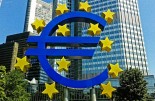abrdn: QT increasingly in the focus of ECB
abrdn: QT increasingly in the focus of ECB

Pietro Baffico, Economist at abrdn, comments on this week's ECB meeting.
Large hikes have become the new normal nowadays, given the relentless rise of inflation concerns policymakers more than the risks of a looming recession. Inflation in the Euro Area was confirmed at record high levels at 9.9% in September, with core reaching 4.8%, keeping pressure on the ECB to frontload policy tightening.
The other element which is likely to provide backing to aggregate demand, and in turn inflation, is the fiscal support that is incrementally being deployed by European governments. Indeed, in an economy that is already overheating, fiscal policy interventions will require monetary offset to balance their demand consequences. That’s why it should come with little surprise that members of the Governing Council have also voiced concerns about the impact fiscal policy might have, suggesting that support for the cost-of-living crisis is best when targeted and temporary.
We think the ECB will likely opt for another 75bps hike at the October meeting next week. The debate on the future path has shifted from normalising rates, after over a decade of historically accommodative policy, to discuss where the terminal rate may lay. The balance of risks is tilted for a similar large magnitude to be repeated in December, albeit the central bank will unlikely pre-commit, and remain data-dependent.
QT is also increasingly in the focus, with few policymakers suggesting a reversal of the ECB balance sheet starting from 2023. Thus, it is possible the topic will be debated in October. In any case, we would expect the process to start gradually. affecting the APP rather than the PEPP, and in the form of passive run-off (whether partial or to all maturing securities), rather than active asset sales. A risk for investors is that this process might fuel fragmentation risk, especially given tightening market conditions and an upcoming recession. These factors could also delay the unwinding of the balance sheet.








